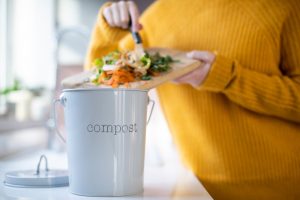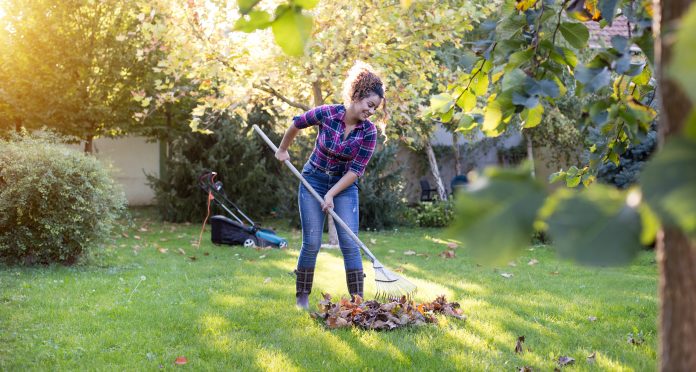Sunshine Coast Council will introduce a universal green waste bin in a bid to reduce the flow of tonnes of garden waste clogging up landfill.
Council is pushing ahead with a plan to change the current ‘opt-in’ green waste collection service — used by around 28 per cent of ratepayers — into one in which residents have to ‘opt out’.
Reasons for opting out will be developed but could include not having a garden, such as people who live in apartment complexes.
The new scheme, which will be introduced in July 2022, is the first phase of the council’s broader plan to eventually provide a combined garden and compost service to include people’s kitchen scraps.
It’s estimated the cost of the green waste service, once the majority of ratepayers are on board, will be $32.58 — a reduction on the existing fee of $62.10 charged to those who currently opt in to the scheme.
The more people who have a green bin the cheaper it will get across the board, with the future introduction of a combined compost collection service slashing costs to $20.60 per year.
It’s calculated that more than 50 per cent of rubbish in Coast general waste bins is organic material that could be diverted away from landfill and recycled for compost.
Help keep independent and fair news coming by subscribing to our free daily news feed. All it requires is your name and email. See SUBSCRIBE at the top of this article.
At a recent meeting, councillors were told that diverting garden waste such as grass clippings and palm fronds from the dump would save money and valuable landfill space.
At the moment, residents who don’t have a green bin have been putting their garden waste in the ordinary domestic service which councillor Ted Hungerford told council was costing the community.
“If we keep doing what we are doing it’s going to cost you more and more; the cost of waste will keep increasing. This is about trying to help you save money,” said Cr Hungerford.
The new bin will come into effect in July 2022 to time with Council’s new rubbish collection contract and it was hoped that by 2025 it would advance to a Food Organic/Garden Organic (FOGO) bin to also collect kitchen scraps.

A FOGO bin is where Council believes the real benefit and biggest reduction in landfill will come as about one-third of general waste is food scraps, however the proposal is yet to undergo a business case and costings.
Councillor Peter Cox said voting on the new bin service felt like “Groundhog Day” because the council had rescinded the same decision to introduce an ‘opt-out’ green bin service seven years ago in reaction to “misinformation” in the community.
“For me that (rescinding the decision) was a huge mistake and one that I urge you not to repeat again today,” he said.
Service portfolio holder Councillor Winston Johnston said the council had a target to divert 55 per cent of household waste from landfill by 2025.
Do you have an opinion to share? Submit a Letter to the Editor with your name and suburb at Sunshine Coast News via: news@sunshinecoastnews.com.au
“We are currently diverting 37 percent, however if each household has a garden waste bin, it is forecast that our region will move to 42 per cent,” he said.
“This makes a big difference due to the cumulative effect of waste going into landfill. It will extend our landfill life and if transitioned to a FOGO service, will reduce greenhouse gas emissions by over one million CO2e tonnes over the next 30 to 50 years.
“This is important because it takes that long for waste to break down — so it’s not just what you put into it today, it’s the impact of the emissions generated for the next half-century.
“In reverse, there is a cumulative benefit. Reduce landfill waste today and we benefit for the next 30–50 years and beyond.”
The council undertook community engagement and said feedback from more than 7500 residents was overwhelmingly in favour of a garden waste bin service.
Sunshine Coast Council Service Delivery portfolio Councillor, Christian Dickson, said Council’s online survey found 84 per cent of respondents agreed with a service to reduce organic waste in landfill and convert recovered organic material to useful by-products.
“When asked about a garden waste bin, 74 percent of respondents supported an opt-out garden waste service be rolled out region-wide, because it was good for our community and the environment,” he said.
“The feedback also revealed 83 percent of survey respondents supported council implementing a Food Organics and Garden Organics (FOGO) bin service, which is something council will continue to investigate.”
Cr Johnston said with less waste going to landfill, it may also mean households would pay less for the Queensland Government Waste Levy next year.
“At the moment, the Queensland Government reimburses council for the State Waste Levy of $85 per tonne, however there is no guarantee that will continue after July 1 2022, meaning households could be faced with an extra $61.88 cost to dispose their rubbish.
“Introducing a garden waste service will see more waste diverted from landfill, potentially reducing the levy costs.
“In addition to reducing fees to all ratepayers, this is an important first step on the journey to transitioning this third green bin to a Food Organics and Garden Organics collection service to put us on the road to becoming a circular economy.
“If council decides to introduce a FOGO service, our community will be one of the first in Queensland to adopt it and benefit, joining more than 100 councils across Australia.
For more information on the expanded garden waste bin service visit council’s website.
Sustainable living tips are available at livingsmartqld.com.au.
Key points
- An opt-out garden waste service will start for Sunshine Coast residential households from July, 2022.
- Garden clippings, weeds and leaves can go into the lime-green lidded garden waste bin.
- The garden waste bin will be collected fortnightly, on alternate weeks to recycling bin collection.
- Garden waste will continue to be accepted at resource recovery centres.
- As a result of economies of scale, the garden bin collection service will cost less.
- Some property owners may be exempt and details are still to be determined.





